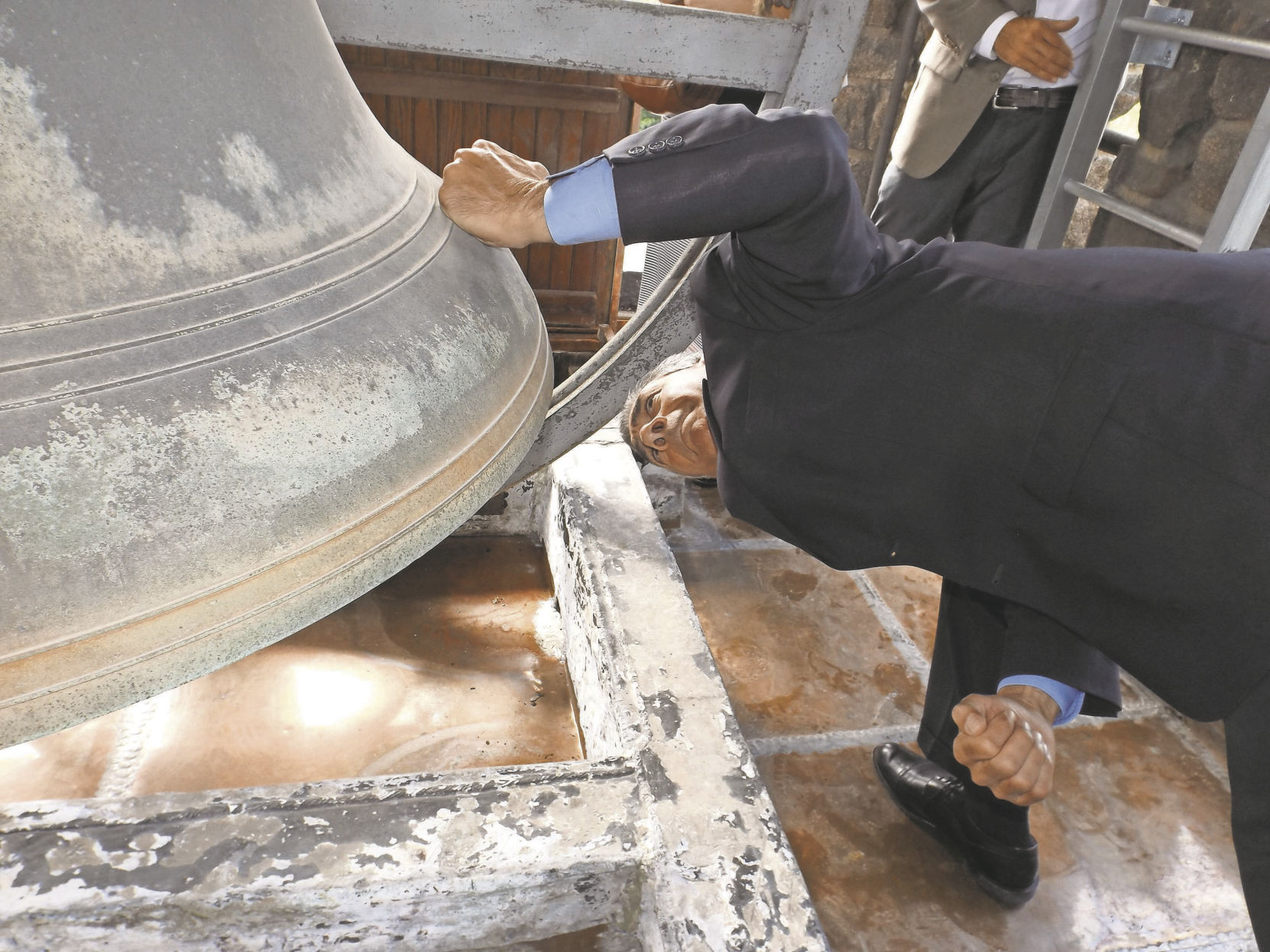By Gene Robbins, Managing Editor
Duke Farms unveiled Wednesday its long-promised renovation of the exterior of the coach barn, once workshops and the executive offices of J.B. Duke, who amassed his 2,700-acre estate in northern Hillsborough in the late 1800s.
The coach barn stands as the second major restoration on the Duke property since it reopened to the public in 2012 as a preserve for environmentally sustainable land use practices.
In addition to the installation of a completely new slate roof that perfectly matches the original, Duke Farms repointed the 5-story clock tower, completely refurbished the original Seth Thomas tower clock, restored the weather vane to its original design, and replaced the original cedar shingle siding in kind, along with new cooper gutters and downspouts.
The $1.4 million renovation of the exterior took pains to honor the original legacy of the building, constructed about 1899. With original Vermont slate unavailable, contractors found compatible Virginia stone. Red cedar for shakes was sent to Duke Foundation artisan workshops in Rhode Island to be cut to specification.
The ceremony gave nods to eccentricities of the Duke family. The coach barn could be considered the first building that Mr. Duke, who made his fortune in the tobacco industry, built on what was his getaway estate in the middle of rural New Jersey at the turn of the 20th century.
Michael Catania, executive director of Duke Farms, said that Mr. Duke treated the coach barn as a 20th century “man cave,” a getaway less than a quarter-mile stroll or carriage ride from the home where he could tend to business matters or manly stuff like horses and automobiles.
He noted that some of copper ribs over roof edges showed evidence of bulletholes, perhaps from Duke cousins or nephews shooting pigeons off the rooftop. Original, greened copper was reinstalled over the top of new, thicker gauge copper to keep the “weathered” look.
Duke Farms received permission to replace the roof and siding at a July meeting with the Historic Preservation Commission, before the foundation embarked on what became a long and contentious battle on the proposed demolition of the Duke family homestead down the lane and behind an iron gate from the coach barn.
The foundation received township permission to demolish the house in October, but opponents took their case to court and finally being rebuffed in March when the state Supreme Court declined to hear a plea to stop demolition.
Mr. Catania said the 50 acres or so where the house stood are being cleared and restored and should be open to the public in the fall of 2017.
The sparkling coach barn is another step in Duke Farms mission to
Duke Farms envisions the coach barn as a future conference center. Interior work will require major heating, air condition and ventilation work, and require an elevator. A hay loft on a second floor will be future conference space.
Jon Wagar, the deputy executive director, led small groups up the clock tower Wednesday to view the 17,000-square-foot roof work from above. Educator Joanne Vogel stood ready to answer questions about the facility.
Duke Farms does hold some group meetings in the coach barn, in the main room where murals of hunting scenes from four continents grace the walls. Off one wing stands the stables for horses that once provided energy for farm work.
Assemblyman Jack Ciattarelli, whose family has one of the plots in a community garden on the estate, said Duke Farms was the perfect therapeutic place to come when the weight of the world falls too heavily on people. He reported that all 16 of his tomato plants are doing well.
Mayor Frank DelCore welcomed the opening of another “jewel,” he said. Every time he hears of a Duke Farms restoration, he said, he knows it will be “something magnificent.”
Tim Johnson, a member of the township Historic Preservation Commission and a restoration specialist by vocation, said he was continually impressed by Duke Farms’ attention to detail, gilding, reuse of materials and search for compatible materials.
Doris Duke’s 1949 Cadillac Derham touring car has been removed from the building. It is being resorted in Rhode Island and leased to a nonprofit auto museum near the Duke mansion in Newport, Rhode Island.

